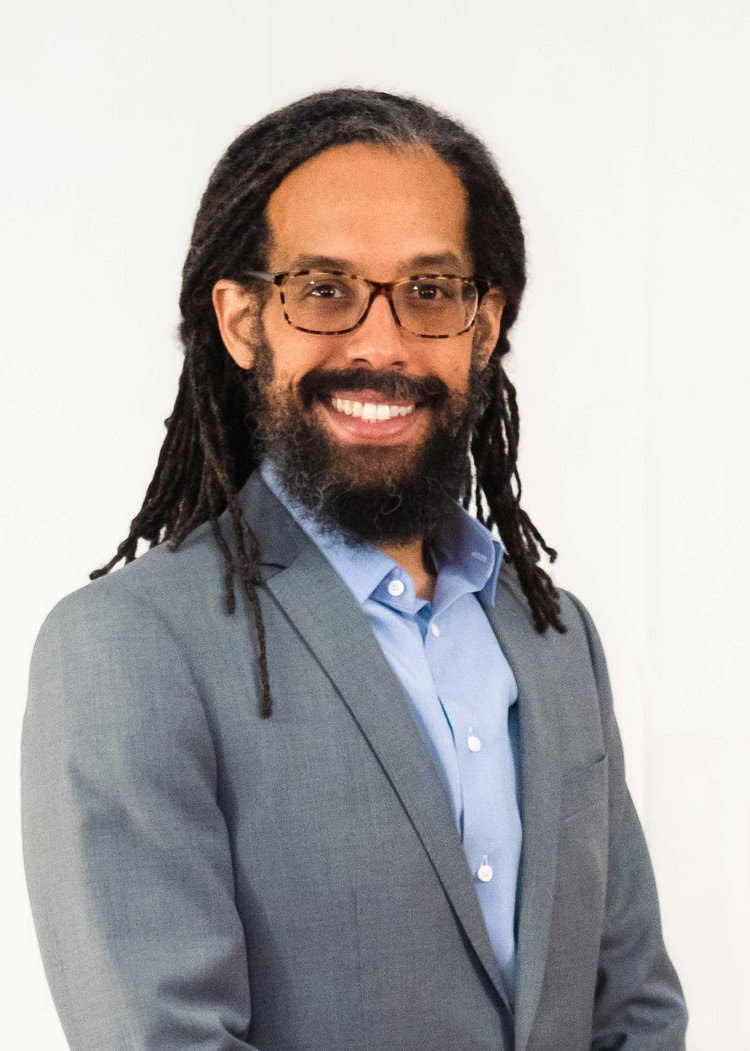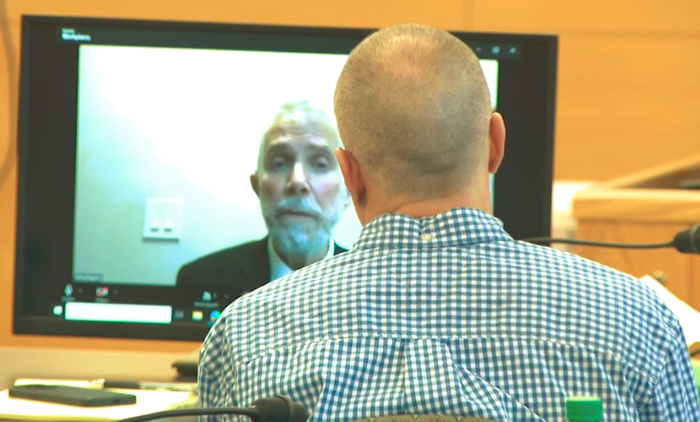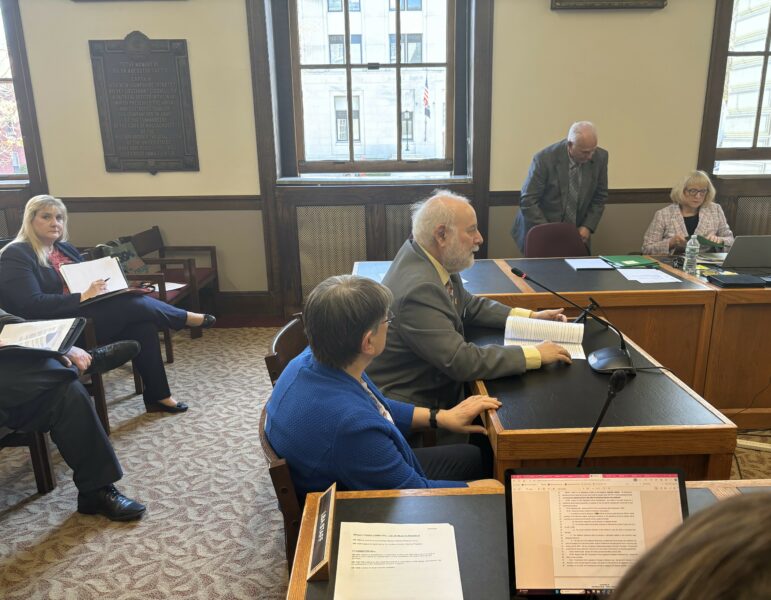
The New Hampshire Center for Justice & Equity is a newly formed non-profit organization that seeks to describe and address the obstacles experienced by communities of color and similarly marginalized communities. NHCJE is sparking dialogue and examining real solutions that reflect New Hampshire’s realities and values, emphasizing to state leaders that New Hampshire is more productive and competitive when everyone can belong.
The current rate of DEIJ professionals being hired and fired is unsustainable, dehumanizing, and irresponsible. School districts regularly look for someone to come in and fulfill all of their DEIJ wants and needs, all while the districts themselves aren’t clear on their own wants and needs. The authors implore districts to become clearer on their needs, have realistic and measurable ideas of success and the type of change they want, and be committed to supporting these individuals and teams for the long haul.
By: Sarah Robinson & Dr. R. Jamaal Downey
To school administrators, school board members, and those that support any of these roles, we hope this piece plants a seed– something for you to think about as you move forward: the current trend of hiring individuals to solve institutional and systemic problems has to stop. K-12 school district administrators, be willing to look into a mirror to identify and fix your diversity problems. K-12 faculty, staff, and community members, be willing to advocate for a wider plethora of solutions to these institutional issues. Hiring a DEIJ professional isn’t the end of the work– it’s the beginning.
The unsustainable rate at which “head of diversity” positions increased between 2015 and 2020 was a staggering 107 percent while the title “Director of Diversity” increased 75 percent in the same timeframe. To the average person, these numbers might serve as proof that things are changing. However, between 2018 and 2021, 60 percent of diversity officers at S&P 500 companies quit with the average tenure being a menial two years.
These numbers might seem contradictory on a surface level despite the reality that they go hand in hand. With the recent increased media attention to police brutality that came from (but did not start at) Trayvon Martin (2012), Oscar Grant (2013), Michael Brown (2014), Walter Scott (2015), George Floyd (2020), Breonna Taylor (2020), and the most recent, Tyre Nichols (2023), there was what some referred to as a racial awakening. And while this racial awakening might have increased among white Americans by 5 percent, others have (rightly) suggested that there was not (and hasn’t been) any sustained racial awakening.
As professionals in education, this can all be quite chilling as we raise the next generation to be more of themselves and less like us. In education, Dr. Rudine Sims Bishop conceived the concept of windows and mirrors and sliding glass doors. She believed that children’s literature could act as a window into other cultures, a mirror for our own, and sliding glass doors to enter other people’s lives. The deeper details of this concept aren’t necessary for this blog. What is essential is the concept of either looking at our own reflection, looking onto others, and utilizing the sliding glass door as action to enter and engage, not navel gaze. This metaphor is important for our current state of chief diversity positions in general, but more specifically when thinking about DEIJ directors for school districts. As you continue to read, the authors invite you to make connections and identify who’s looking out of windows or into mirrors.
There are a plethora of anecdotal stories of diversity officers being hired and leaving/being fired either before they start, or within months. In many of these cases, the people being brought into these positions were doomed to fail from the start. Research has shown that DEI efforts fail due to several reasons, including (but not limited to): lack of true and genuine buy-in from leadership, unclear goals with no measurement of success implemented in order to analyze if said programs are working, lack of resources in both manpower and money, implicit bias and a reluctance to allow changes to take root. We would love to see what individual solutions communities would suggest for the institutional issues laid out above. There isn’t enough emotional support, suggested programs, and letters to the editor that we might provide individual diversity officers the solutions for these institutional and systemic issues that plague so many.
When asked to write about ways to help support diversity officers in New Hampshire, it’s hard for the authors to give a cut/paste formula for individuals (windows) when the main issues reside within institutions (mirrors). By trying to figure out ways to help and support individual diversity officers succeed and not engaging in honest and transparent dialogue with the institutional players that are hiring diversity officers at a frenetic pace, we are trying to provide individual solutions to systemic issues. This will never work in a sustained way. Sure, you might keep said officer longer than the 2-year average. But is solely retaining a position indicative of true change from the ground level to the administrative offices?
While the intent might be from a good place (yet to be determined), the impact is that we have people of color being hired in New Hampshire with an insurmountable feat of fixing all of the school districts’ diversity issues, and then, said individuals are being left on their own wolves with little to no institutional support. The authors have reviewed a few of the job descriptions for New Hampshire’s K-12 school districts. What we found were nonspecific and non-measurable goals, meandering descriptions that were blurry and vague at best, and lofty unattainable goals in which not even the most fit and well supported individual would be able to succeed. Additionally, some of these job descriptions are asking for all of this work to be done in a 40h or less work week.
Districts must stop hiring DEIJ professionals with hopes and dreams that these individuals will be their knights in shining armor. These individuals tasked to change institutional issues are specific tools with specific limitations in the district’s toolbox that have to work alongside and with several other tools to fix these longstanding diversity issues. Not one single solution will make the impact that these districts hope. Rather, districts must be willing to not only hire DEIJ directors, but provide them with a budget that matches the needs they must address. By budget, we are not merely suggesting money, but also including a budget of emotional energy. DEIJ directors need to feel as though the people that hired them are willing to stand in the ring with them, not simply toss them to the wolves by unrealistic expectations, without any monetary budget, and without support.
At a cursory glance, the exclusion of marginalized identities has become more normalized in both theory and practice. The people that are being hired that look like those we feel the responsibility to help, are actual people that endured the same hardships as those they were hired to help and protect. We cannot forget the humanization of the people called to do the job. Their mental, physical, and emotional health suffer consequences when they’re objectified by their employers to be utilized as mere tools at the expense of their humanity. The needs of individuals that interact with institutions vary and change over time. What they as humans need might be the same as their students and staff. Have you asked your DEIJ professional what they need for support? Have you asked multiple times over a length of time as things evolve? Have you fostered an environment in which your DEIJ person feels safe and comfortable knowing you have their back and will help support them when accusations get lobbed towards individuals that institutions hire to fix institutional needs? Asking these questions in a genuine way is using the sliding glass door as action.
There are ways to combat unrealistic expectations for K-12 districts. First and foremost, districts must be willing to have earnest dialogues with themselves to identify their realistic needs. Secondly, districts themselves need to be ready to make slow and steady progress despite the political headwinds that steadily blow. This means being able to withstand potential public pushback against the much-needed change. Remember, hiring a DEIJ professional isn’t the end of the work– it’s the beginning.

Dr. R. Jamaal Downey is a NHCJE Board whose expertise derives from a life of experiences as a biracial male living in predominantly white spaces with his white mother and stepfather. His personal story and academic interest converge around: identity; language, ideology, and consciousness; pedagogy, and epistemology. Jamaal received his B.A. in Education from New England College, M.A. in Globalization and Cultural Studies from Dartmouth College, and his Ph.D. in Language, Literacy, and Culture in Education from the University of Massachusetts Amherst.






